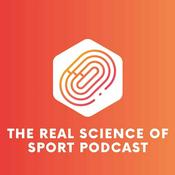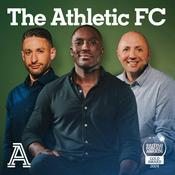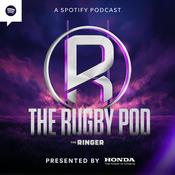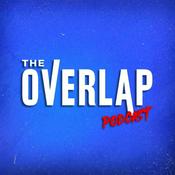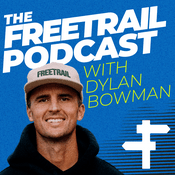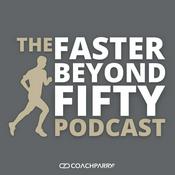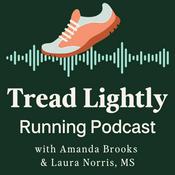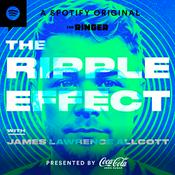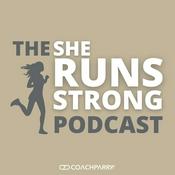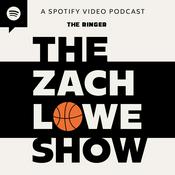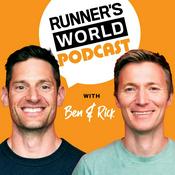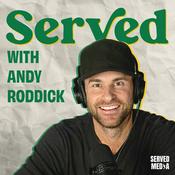72 episodes
- In this episode of Eighty Percent Mental, host Dr Pete Olusoga talks with endurance runner and Peloton instructor Susie Chan, and psychologist Dr. Julie Johnston to find out “How to Run and Ultramarathon!” They discuss Susie's journey from a non-runner to an accomplished ultra marathoner, the mental challenges faced during extreme races, and the importance of community and self-talk in building resilience. The conversation also touches on personal growth through running, the impact of mental strategies on performance, and reflections on the significance of support networks in sports.
Follow Susie on Instagram: @susie_chan_
Find Susie on Tik-Tok: @susie.chan
Grab Susie’s book here: https://www.waterstones.com/author/susie-chan/7175268
Follow Julie on Instagram: @juliepjohnston
Find Julie on (LinkedIn): Julie Johnston
Check out Julie’s website: informedperformance.co.uk - In this episode of the Eighty Percent Mental podcast, hosts Dr Pete Olusoga and Dr Leah Washington welcome Dr Andrew Wood, a performance psychologist with extensive experience in disability sports. The conversation explores Andrew's journey into sports psychology, his work with blind football, and the psychological challenges faced by athletes with disabilities. They delve into Rational Emotive Behavior Therapy (REBT) and its application in performance psychology, as well as Andrew's personal experiences with long COVID and the impact it has had on his life and values. The discussion emphasizes the importance of acceptance, meaningful living, and the role of psychology in everyday life.
Follow Woody on Instagram: @dr_andrew_wood
Follow Woody on LinkedIn: Dr Andrew Wood - In this episode, Dr Pete Olusoga welcomes Dean Hammond, a seasoned coach with a military background. They discuss the evolution of gym culture, the importance of practical experience in coaching, and the mission of the Catalyst Project, which aims to transform everyday athletes into 'athletic weapons.' Dean discusses the importance of building a supportive ecosystem for athletes, integrating psychological practices into coaching, and emphasizes the need for a community-focused approach in the fitness industry, advocating for deeper personal goals over superficial ones. We explore themes of vulnerability, the evolution of training as we age, the importance of mastering the basics in health and fitness, and the profound life lessons learned through experience. Dean emphasizes the finite nature of life and the need to live with purpose, encouraging listeners to focus on what truly matters and to embrace their unique journeys.
Follow Dean on Instagram: @coach_dean_hammond
Check out the catalyst project: thecatalystproject.co.uk - In this episode, Dr Pete Olusoga, and Dr Leah Washington are joined by Dr. Angel Brutus to explore the multifaceted nature of leadership. They discuss the qualities of great leaders, the importance of understanding leadership identity, and the myths surrounding leadership capabilities. The conversation highlights the significance of context, personal experiences, and the influence of those around us in shaping effective leadership. Certified Mental Performance Consultant, Dr. Brutus, discusses the complexities of leadership identity, emphasizing the importance of self-awareness, reflective practices, and the impact of societal factors such as gender and race on leadership roles.
Follow Angel on Instagram: @sportpsychsynergy and @angelbrutus1
Follow Angel on LinkedIn: Synergistic Solutions and Angel Brutus - In this special episode of the Eighty Percent Mental Podcast, host Dr Pete Olusoga talks with Dr. Laura Swettenham and Dr. Kristin McGinty Minister from the ‘But Why?’ podcast to explore the psychological implications of our online lives, the prevalence of misinformation, and the importance of critical thinking. The conversation emphasizes the need for questioning the content we consume and understanding the purpose behind it, how social media can be both beneficial and detrimental to mental health, the role of algorithms in shaping our experiences, and the challenges faced by women in online spaces. We talk about the challenges of maintaining humanity in a digital world and the importance of balance in our online interactions.
Follow Kristin on Instagram: @Doctor_kristinm and @Butwhy.pod
Follow Kristen on Tiktok: @dr_kristin and @Butwhy.pod
Follow Laura on LinkedIn: Dr Laura Swettenham
Follow But Why? on Youtube: @ButWhyMinds
More Sports podcasts
Trending Sports podcasts
About Eighty Percent Mental
If you‘re interested in the mental side of sport performance, this is the podcast for you. Whether you’re an athlete, a coach, a sport psychology professional, or even just a sports fan, Dr Pete Olusoga, along with his expert guests, will answer all the questions you could possibly have about the role of the mind in sport performance.
Is there such a thing as a winning mindset and if so, where can I get one? Why do we get nervous, and what should we do about it? What‘s the deal with mindfulness?
In each episode, Dr Pete - with the help of some special guests - will ask and answer questions like these, exploring what the research says, and highlighting lessons from sport psychology that you can use on and off the field.
Podcast websiteListen to Eighty Percent Mental, The Real Science of Sport Podcast and many other podcasts from around the world with the radio.net app

Get the free radio.net app
- Stations and podcasts to bookmark
- Stream via Wi-Fi or Bluetooth
- Supports Carplay & Android Auto
- Many other app features
Get the free radio.net app
- Stations and podcasts to bookmark
- Stream via Wi-Fi or Bluetooth
- Supports Carplay & Android Auto
- Many other app features


Eighty Percent Mental
Scan code,
download the app,
start listening.
download the app,
start listening.

